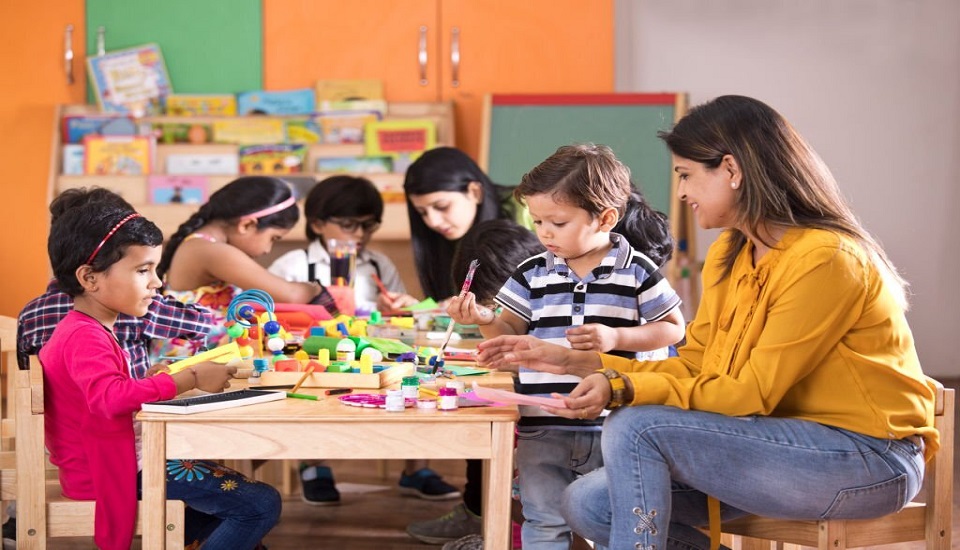Playschools Are Aligning Themselves With Child Psychology
24th February 2022

This era has become so competitive that parents are always worried about the academic, mental, cognitive, social, and physical development of children. Many parents remain busy due to their commitment to their organizations and hence children are not getting quality time to spend with their parents. That is why early years educators having authentic knowledge on child care and education courses are focusing on playschools of children.
Early years care and education courses have studied and found out that preschools or playschools play a great role in a child's life. When kids get in touch with early childhood educators their learning experience evolves. Therefore, "accreditation of playschools mandatory in India" should be the new slogan. Since time management is becoming an issue for working parents, early years care and education online courses are providing the exact amount of training to the candidates who want to become early childhood care educators in the future.
Child Psychology And Playschool: How Are They Related?
Preschool teachers have attended multiple seminars and webinars to understand how children learn during their early days. They have come across a common and serious topic that experts have discussed explicitly in those seminars and it is called Child Psychology. Besides these seminars, state governments are also promoting the need of understanding child psychology because the brains of young children function in different ways in different circumstances.
It is the study of what goes in the conscious and subconscious stages of children's minds. These education programs try to figure out their mental state and what triggers their specific actions. Often, psychologists have observed that a child is becoming too quiet or becoming hostile owing to a very petty issue. One of the most important reasons behind such behavioural patterns is the lack of communication between parents and children.
Well, I can understand that parents are also not at their faults as they too manage their offices as well. Child Psychology covers 3 main areas, i.e., the physical development, cognitive development, and emotional development of a child. Child psychologists are referring to playschools for children as a part of their early childhood education program because educators in playschool are taking proper care of kids and enhancing their growth.
Playschool As A Concept:
A Playschool is just a small get-together with children where they spend some quality time for hours together each day under the supervision of early childcare experts. Preschools aim at developing creative skills and focus on the social, academic, physical, cognitive, and emotional development of the child. They do not drag kids into the tough pool of academics. They learn more when things are explained to them in creative and fun ways by giving them real-life and relevant examples.
Why Playschools Are Important?
- A good playschool aims at the overall development of the child by allowing spending quality time with your child.
- A child gets all the love and care from you that he or she deserves from a playschool teacher and parents can also attend it by having a good work-life balance.
- Playschools ensure productive games, activities, and exercises along with factual knowledge. This makes them fit for the future by becoming self-dependent.
- Besides games and activities, children are given healthy and tasty food and help them to get used to veggies. They are also taught to avoid junk food as much as possible.
- Preschools and playschools make children well-disciplined.
That is why playschools should be made mandatory in India due to the time constraint factor that parents are facing. Early childhood educators are taking great care of children in a playschool and are investing a lot of emotions to cater to other needs. Playschools are gradually becoming an integral part of the child's early care phase.
Written By : Samantha Kanth











